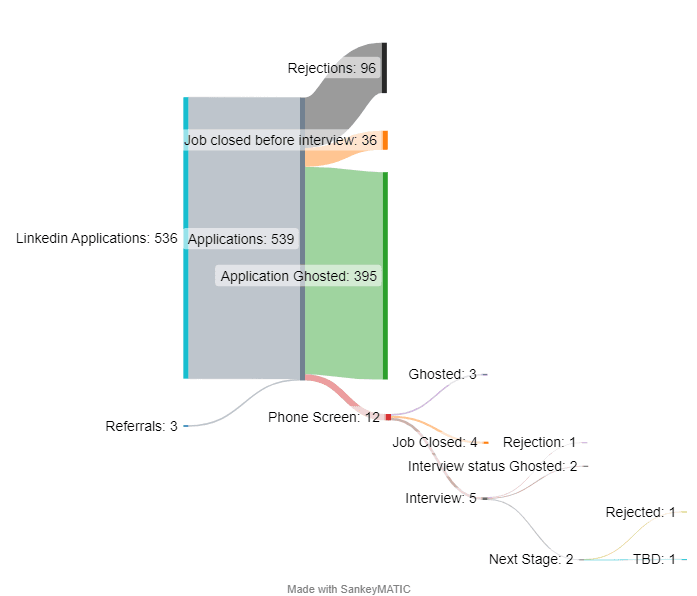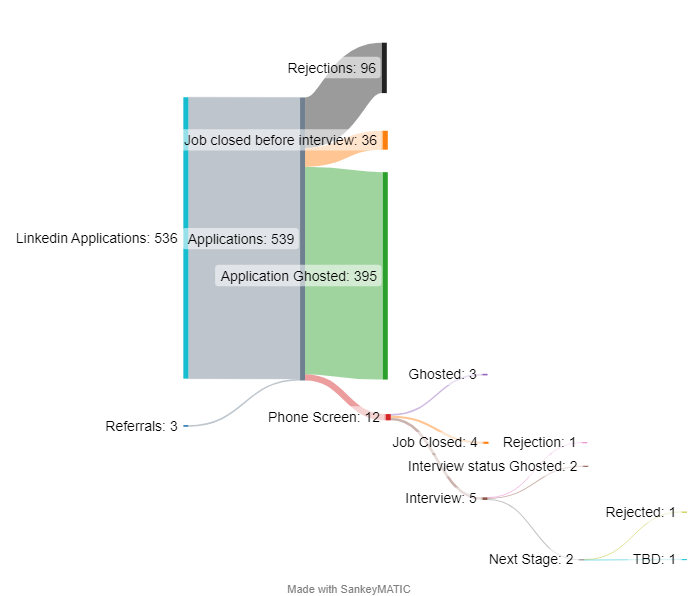Transparency and Vulnerability
Posted on:
Transparency isn't a one way street, and vulnerability is important.
Written by: David Ward
This is a repost of my original post on Linkedin. See it and any further discussions there.
I’ve always believed in the power of transparency, especially during the interview process: Job descriptions up front, salary talked about from the beginning, pointed questions about team culture. So, in the spirit of being open and vulnerable, it’s my turn to share.
I can honestly say that this current period has been the most challenging in my 10-year professional career when it comes to finding work. It’s even tougher than when I first started with zero experience.
Having an eight-month gap in my employment history feels like a gut punch, and every passing day makes it more difficult to combat imposter syndrome.
This is a Sankey diagram of what this eight-month time period looks like. It’s not perfect, and is missing a small handful of roles that I initially applied for but ultimately declined before moving further. And yes, the majority of data I pulled directly from my email with various filters, with some small exceptions that there weren’t emails for.
However, I firmly believe that adopting a growth mindset is the only way forward, and I have compelling reasons to overcome the imposter within me as well.
I kicked off my career utilizing sheer dedication, an open mind for learning, and a non-trivial amount of luck at a promising startup that was transitioning out of its initial phase. Working with incredibly talented individuals, I delved into what it meant to be a quality professional and spread my wings.
From that point on, I’ve written test automation using a large variety of tools and frameworks, spanning multiple programming languages. I’ve built projects from the ground up, tackling challenges in mobile automation, API automation, web UI automation, Electron application automation, and more.
But above all, I’ve excelled at finding bugs — ones that could potentially jeopardize a product, ones that could make even security professionals cringe, and even those that were initially overlooked but became significant problems once I delved into them to prove their worth. And let’s not forget the countless minor bugs that, once resolved, enhanced the product and polished it further. And of course, we’ve all found bugs that will make someone at the organization roll their eyes.
Perhaps it’s time for me to reconnect with the elements that propelled my career’s beginnings: sheer dedication (check), an open mind for learning (check)… and yes, a non-trivial amount of luck (hmm).
So, I want to give a shoutout to luck: Wherever you may be, in whatever form you manifest, and whichever fascinating company you’re associated with, I would love to have a conversation with you about opportunities for Senior SDET/automation engineer/QA engineer/tools engineer/technical documentation/QA Management/Cultist of QAThulhu roles.

